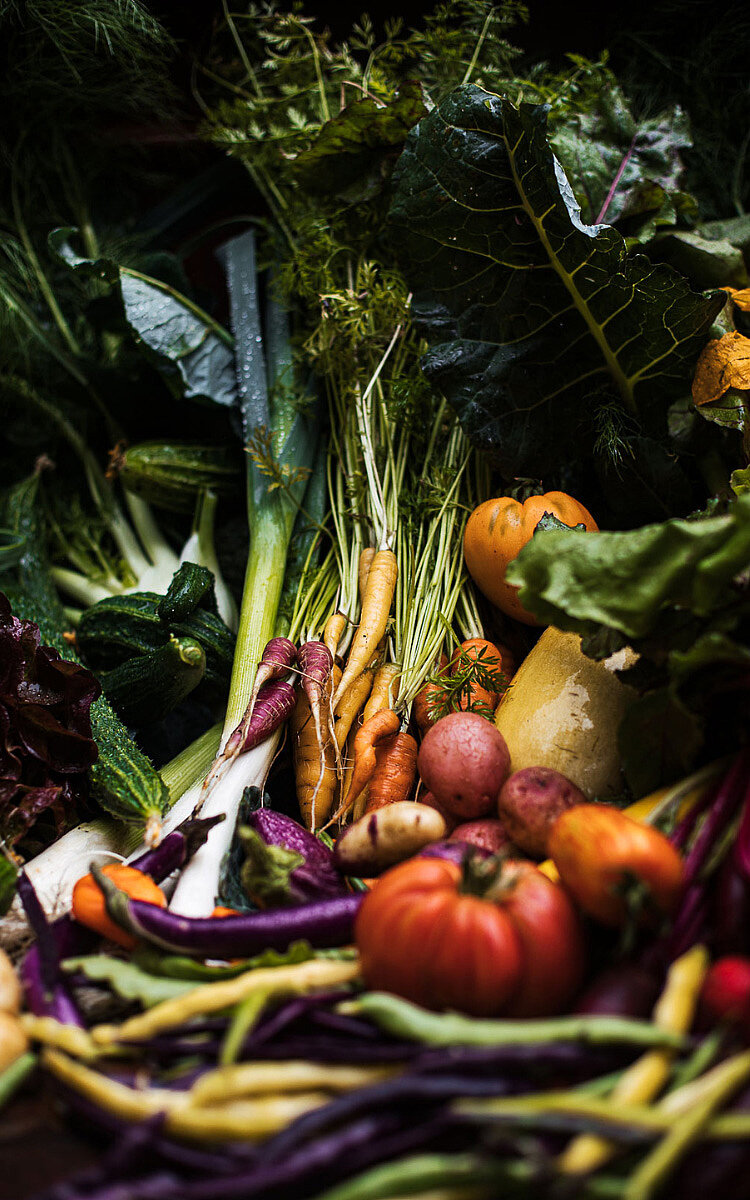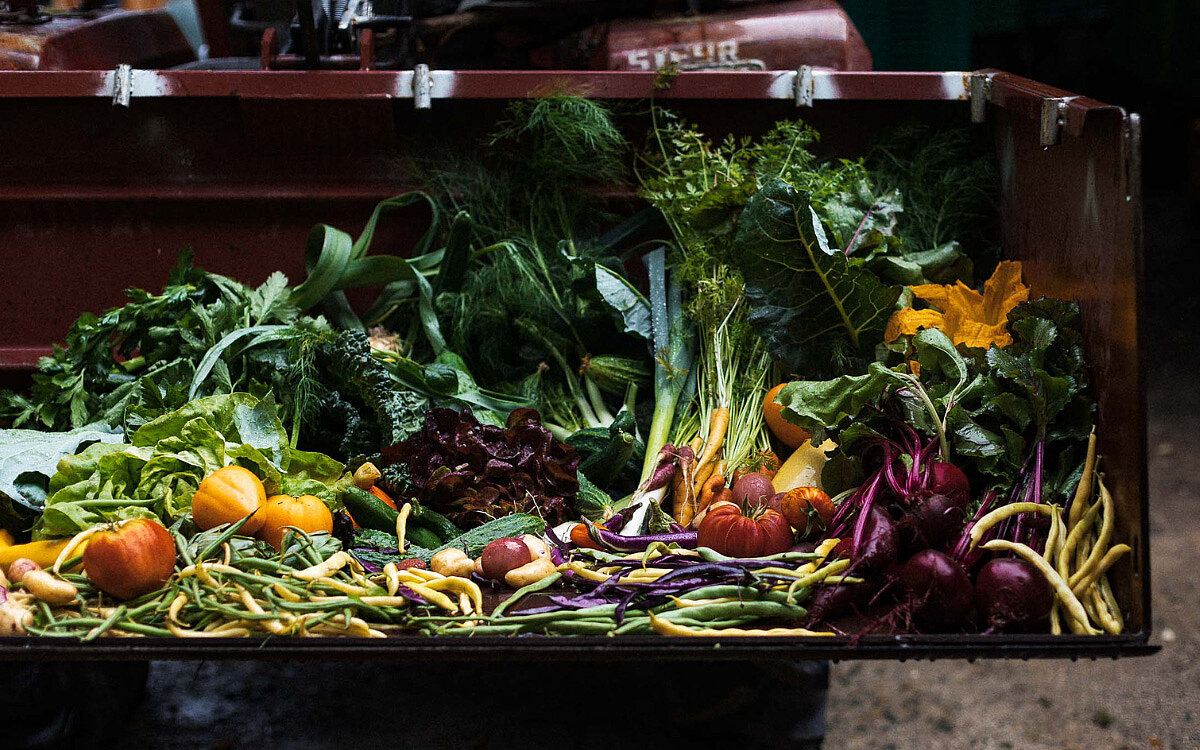In celebration of World Women's Day, we sit down with Marta Messa, the young and dynamic Secretary General of Slow Food International. Taking the helm during a time of great challenge and opportunity, Marta represents a new wave of activism, championing sustainable food systems both within the EU and on the global stage. With a vision that interlaces the ecological with the equitable, Marta shares with us her insights on how we can cultivate a future where good, clean, and fair food is a universal standard. Beyond policies and advocacy, she sheds light on the pivotal role women play in nourishing and nurturing our communities, underscoring why they are indeed the backbone of our food systems.

My parents live a few kilometres away from the Slow Food headquarters, in the countryside of northern Italy, which is a happy coincidence. That's where I grew up, until I won a scholarship to an international school (the United World College of the Adriatic) and from there on I continued studying abroad, first in the UK, then the US and finally in Germany - with a year off during which I worked in Italy, Guatemala and Belgium. Those international experiences moulded me. After my studies I was looking for an opportunity to do something that I believed in: Slow Food was preparing the fourth edition of Terra Madre and there was help needed to organise the participation of the African delegation, I was glad I could join the team working on the event. After so many years abroad, it was also a nice opportunity to reconnect to my roots in Italy.
We have a role to play and that we do have an impact on food policy in Europe: there is no other organisation working across the food system like Slow Food does, bringing together farmers, food artisans, fishing communities, cooks, activists and youth, from across the world. We come with insights and an overall understanding of food systems that other organisations do not have. Our high ambition of good, clean and fair food for all is at the same time rooted in the concrete work of our members who day and day out do concrete grassroots action. This is an added value that by now many in the EU institutions recognise in Slow Food, they look for us, they know our farmers are front runners in sustainability. We have been successful in impacting policies, and we have also failed at times against the big agro-industrial interests pushing in the opposite direction. But the passion of our network, the commitment of the Slow Food producers and the knowledge that we are on the right track keeps informing us and fueling our motivation.
The key challenges are the vested and resourceful interests that want to continue with business as usual. To give an example, when the European Commission proposed the Farm to Fork Strategy, very positive in our view, the University of Wageningen published a study claiming such a strategy would significantly reduce EU agricultural productivity, competitiveness, and farmers’ income. This study, it was later found out, was paid by the pesticide industry. This is just an example of the kinds of challenges we face. But we have opportunities too. First of all, the collaboration with other partner organisations, with whom we are joining forces in the Food Policy Coalition (which we helped create). Secondly, we have gained strong credibility as Slow Food, gaining access to important decision making processes. Also, we have successfully managed to mobilise citizens to raise their voices, and that is something we will continue working on to put pressure on those who represent us.

Right now we are gearing up for the European elections, that will take place on June 6-9. We will soon publish a manifesto and will mobilise the network and all those interested in our proposals to go vote and put food high on the political agenda of the next European Commission and Parliament. Our network will mobilise too at grassroots level through the Good Food Good Farming campaign on the elections, in another coalition that is strategic for Slow Food. As the current mandate comes to an end, we are influencing the processes where decisions could still be reached in the next weeks, especially on the deregulation of new GMOs, and are working on the forthcoming reform of the Common Agricultural Policy. And our advocacy work is always rooted in the experience of our network, where activities continue to develop both in the field of biodiversity and education.
What inspired me was our global network and the amazing work that happens on the ground. In the face of the many crises we face - the climate and biodiversity crises, as well as the political tensions and violence that tear societies and people apart - it is powerful to tap into a global movement that brings about a revolution through food and with joy. The amazing work of the movement is the same thing that keeps motivating me in my daily work: with all the big challenges in front of us, it is easy for many to feel overwhelmed and powerless. At Slow Food we are saying: yes, the challenges are big, but together we can fix them, nourishing each other with our experience and knowledge.
It's been a bit more than a year, and since then we have brought together a new International Council, developed and clarified the governance processes of the movement, further developed our work on biodiversity and education, and laid the grounds for opening up the movement to many more people - whilst opening new opportunities to develop strongly the network across the world. A clear commitment of the current Board is to make sure that Slow Food is impactful, to do so we need to be many, and to be many Slow Food needs to meet people where they are. Our efforts go in that direction, in a year from now I am sure we will have a lot more to say.
Women are the backbone of food systems, and as our global movement works on food, so do women play a crucial role in our movement. There are many inspiring women in Slow Food, many who have an incredible resilience. To give you a small example: on the last night of Terra Madre 2022, a colleague invited me to join a conversation he was having with Dali Nolasco Cruz, indigenous woman and my colleague in the Board, and a young indigenous woman who had a huge task at hand: her community deep in the Mexican countryside had opposed her travel to Italy, but she gathered the courage to go ahead and now was facing the question of how she would bring back what she learnt to her community, questioning what role she would play back home after this. That young woman was already a leader and was taking stock of her next steps. Just like her, many others, through their own paths and in many different ways, have played a key role in nourishing our network, challenging their communities to do more, for the better. I imagine even more women stepping up in the future.
Thank you, first of all, for all that you have done and that you are doing. Keep your eyes open for our European elections campaign as an opportunity to involve more people and to do so right away through an impactful action. If you can join us from September 26-30, 2024 in Parco Dora, Turin, I would love to see you in Terra Madre. If that is not possible, I invite you to join the nearest Slow Food event, big or small, and feel the sense of being part of an Austrian as well as of a European and global community.
And, of course, happy Women's Day, whoever you are: even if you are not a woman, there are some important women in your life, whether your mother, sister, partner, friend and also colleagues. We should celebrate each other, what we have achieved so far and what we aim to accomplish next.



Deine Unterstützung macht den Unterschied: Mit deiner Spende bewahrst du seltene Obst- und Gemüsesorten und bedrohte Tierrassen, stärkst kleine Produzent:innen und förderst ein gutes, sauberes und faires Ernährungssystem für alle. Gemeinsam setzen wir uns für die Zukunft unserer Lebensmittel ein – regional und weltweit.